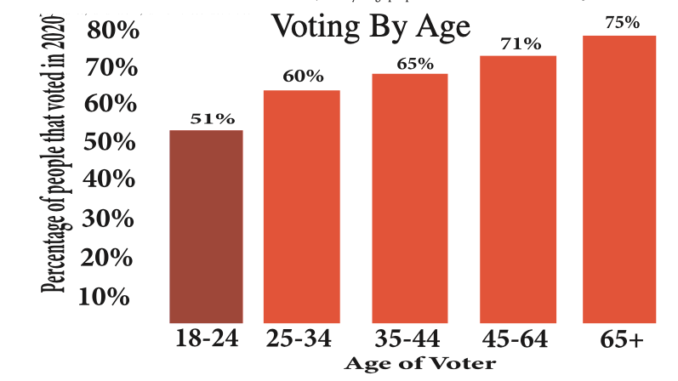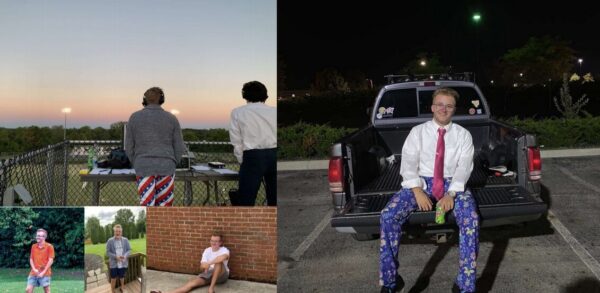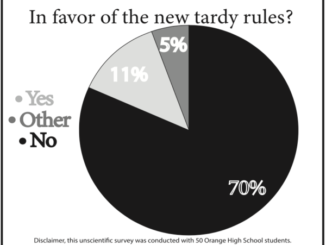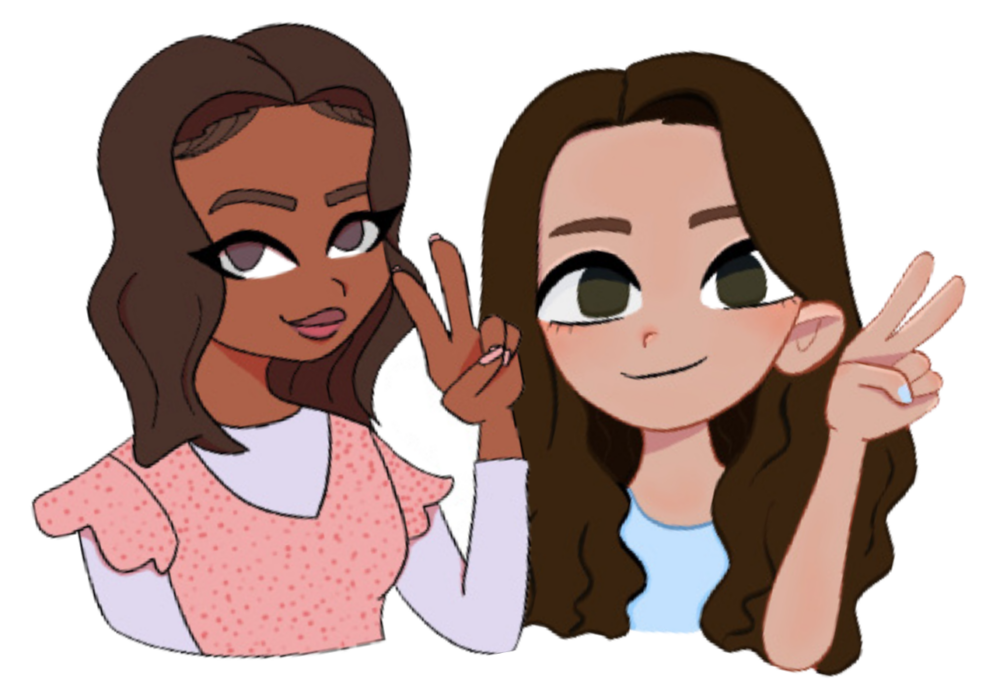
design: Sophie Rogers
source: Census
The year is 2014, and West Virginia teen Sara Blair takes her successful campaign for state legislature to beat a sitting state delegate running for a third term in office. Blair is just 17 years old, still months away from being eligible to vote, according to CBS.
According to Harvard, Blair was elected at age 18, and had to split her time between taking classes at West Virginia University and working in office. She ran for office while still attending her senior year of high school.
In 1971, the legal voting age in the United States was lowered from 21 to 18 years of age according to Rock The Vote. However, it is still a debate about whether it should be lowered even further.
The minimum voting age should be lowered to 16. As shown by Blair and many other teens, most 16 and 17-year-olds have the potential to be just as prepared and intelligent enough to vote as anyone over the age of 18.
The age of 16 is already a milestone in our culture, according to fairvote. When a person reaches the age of 16, they are able to drive, pay taxes, and work, all of these activities are affected by the government, meaning they should be able to represent themselves through their votes.
According to Youth Rights, many teens under the age of 18 are already making their political voices heard through activities other than voting. Young people are starting to join protests, contacting their representatives, and some, like Blair, have even created campaigns for mayor and state legislature.
Many would argue that minors are not politically informed enough to vote. However, this can be proved untrue by these teens.
With the growing accessibility of information on the internet, young people are becoming well-versed in many important social and political issues.
There should be a wider range of young people able to vote on these previously mentioned issues such as climate change, public education, and poverty. They will have to deal with it for longer than the older generations.
This generation will ultimately shape the future, and young people should be encouraged to take a stand against these issues. This is more important than ever with the COVID-19 pandemic and increasing tensions within the country.
In the United States, the largest age group of voters was aged 65+ in recent years according to The United States Census. If young people were allowed to vote earlier, there is a chance they could establish good habits in going to the polls on election years.
Studies in countries that allow teens to vote at 16, such as Austria, Scotland, and others, have shown that voter turnout is higher for the 16 and 17-year-old age group than the 18-22 age group according to CBS. This further suggests that making good habits while still living at home will overall increase the voting percentage throughout the whole country.
With a clear positive affect on political participation, there is no reason 16 and 17-year-olds shouldn’t be able to vote for the leaders of their government.


